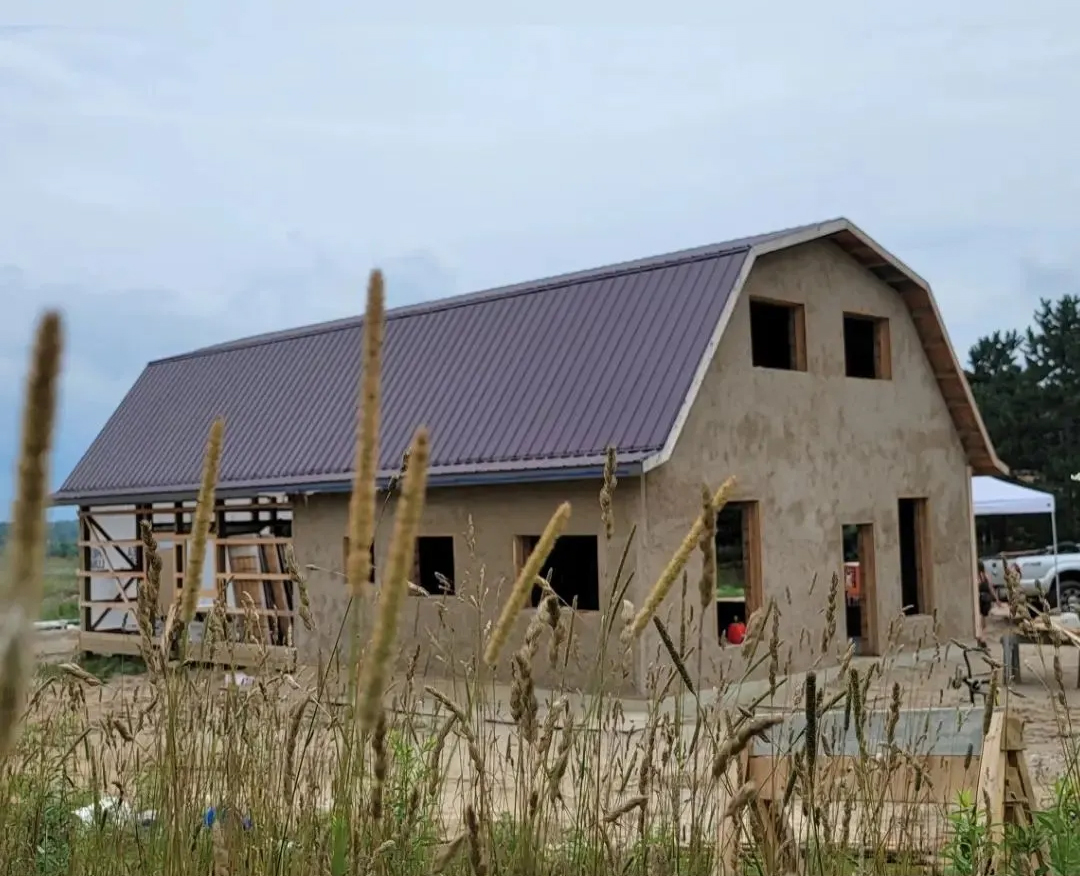A Sustainable Breakthrough
The world is experiencing a shift towards sustainability, and one of the industries that is embracing this change is the housing industry. FiberFort, a Michigan-based construction company, is at the forefront of this revolution, having built Michigan’s first permitted house using hempcrete, a natural insulation material. This groundbreaking project is taking place in Chelsea, Michigan, and it’s set to be a sustainable breakthrough for the housing industry. In this article, we will dive into Michigan’s first hempcrete home in Chelsea by FiberFort, exploring what hempcrete is, how it’s made, and its benefits.
What is Hempcrete?
Hempcrete is a natural insulation material made from the woody core of hemp plants, also known as hemp hurd, mixed with a lime binder and water. It’s an eco-friendly, renewable, and non-toxic material that has been used for construction purposes for centuries. Hempcrete is gaining popularity as a sustainable building material in the United States, especially in states where hemp cultivation is legal.
How is Hempcrete Made?
The process of making hempcrete is simple and involves mixing hemp hurd with a lime binder and water. The mixture is then poured into a formwork, creating walls that are strong, durable, and sustainable. Hempcrete is an excellent insulator, providing thermal mass that regulates indoor temperature and reduces energy consumption. It’s also fire-resistant, pest-resistant, and has a high acoustic insulation capacity, making it an ideal material for eco-friendly construction.
Benefits of Hempcrete
Michigan’s first hempcrete home in Chelsea by FiberFort is set to showcase the many benefits of this sustainable building material. Some of the benefits of hempcrete include:
Sustainability: Hempcrete is a renewable, eco-friendly material that has a low carbon footprint, making it an excellent choice for sustainable construction.
Energy Efficiency: Hempcrete provides excellent insulation, reducing the need for heating and cooling systems and lowering energy consumption.
Durability: Hempcrete is a durable and robust material that can last for centuries. It’s also fire-resistant and pest-resistant.
Health Benefits: Hempcrete is a non-toxic material that doesn’t emit any harmful substances, making it safe for homeowners and the environment.
FAQs:
Q: Is hempcrete legal in Michigan?
A: Yes, hemp cultivation and the use of hemp-based materials, including hempcrete, are legal in Michigan. Hempcrete is now in the U.S. Residential Building Codes.
Q: How much does it cost to build a hempcrete house?
A: The cost of building a hempcrete house varies depending on the size and complexity of the project. However, it’s generally comparable to the cost of traditional construction materials.
Q: How long does it take to build a hempcrete house?
A: The construction time for a hempcrete house is similar to that of a traditional house, although it may take longer due to the drying time required for the hempcrete walls.
Michigan’s first hempcrete home in Chelsea by FiberFort is a game-changer for sustainable housing. The use of hempcrete as a natural insulation material offers many benefits, including sustainability, energy efficiency, durability, and health benefits.
FiberFort is leading the way in sustainable construction, and their groundbreaking project in Chelsea, Michigan, is set to inspire other builders and homeowners to embrace eco-friendly materials and practices. Michigan’s first hempcrete home in Chelsea by FiberFort is a step towards a more sustainable and resilient future.
WASHTENAW COUNTY, MI – Five years ago, hemp was still illegal in Michigan.
Now, the first permitted house using hempcrete — a natural insulation made from the core of hemp plants mixed with a lime binder and water — is taking root outside of Chelsea.
Photos by MLive’s Jacob Hamilton




